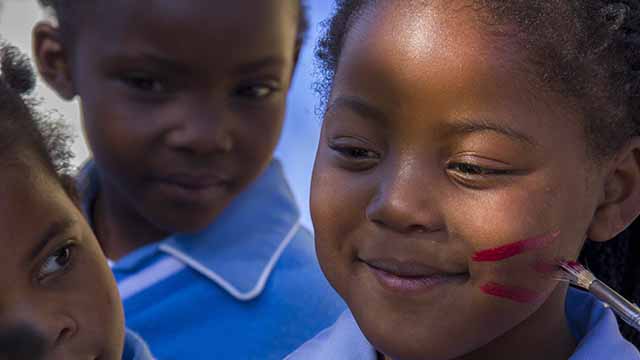
By Cathy Gush
“Things are really cooking,” said Community Engagement (CE) Director, Di Hornby, in reference to the various activities of the upcoming CE Week, which has a distinctly international flavor this year.
The week kicks off on a high note when the campus plays host on Monday and Tuesday to an exciting meeting between six South African universities and six European partners, led by Julie Adair, Director of Digital Collaboration at Glasgow Caledonian University. Other delegates hail from Spain, England, Denmark, Iceland and Norway.
The aim is to discuss the roll-out of the Common Good First (CGF) Project – a digital project which will link community projects in South Africa to each other and to higher education institutions around the world using a web-based knowledge bank and innovative digital storytelling solutions. The project is funded by the European Union, who will also have a representative from Brussels present at the meeting.
Aside from Rhodes, the South African universities represented are the University of the Western Cape, the University of Johannesburg, North-West University, University of the Free State, and Nelson Mandela University. The latter is responsible for building the digital platform that will make it possible for social innovation groups or entrepreneurs to tell their stories and link with each other. The rest of the team will help to identify community projects and work with them to promote their objectives online, while investigating how the academic network could develop innovative approaches to the challenges faced by these projects. The concept is built around the assumption that people are capable of being problem-solvers and that they have used the assets at their disposal to address social or economic issues in some way.
The platform will focus on three themes, Health and Wellbeing, Housing and Environment, and Youth and Education. The idea is that all social innovators can share their stories in order to inspire others and to build networks. Rhodes is in the fortunate position of having been chosen to house one of the three pilot labs that are to be set up for use by community-based social innovators.
Enabling people from all walks of life to tell their own stories, mostly using their mobile phones, is one of the main aims of Digital Storytelling. There is a strong focus on the process, which is aimed at personal, human and community development.
Taking place at the same time as the Common Good First meeting is a Training of Trainers course for academics, teachers and facilitators on Digital Storytelling. The course materials for this was developed by the Rhodes Community Engagement Office with input from partners, after piloting the process with students, academics and community organisations. The course will be run over two days, by the CE team, and will enable the CGF participants to dip into and observe at intervals during their meeting. Having elicited a great deal of interest, this course is over-subscribed and has necessitated the running of a second course at the end of May for Grahamstown participants. In time, the RUCE Office will be applying to Rhodes to have this accredited as a short course with the necessary certification.
From Wednesday to Friday, the Community Engagement and Social Innovation Symposium will be taking place at the National English Literary Museum, with participation from about 20 universities, while the South African Higher Education Community Engagement Forum will also hold a meeting on Wednesday.
“These partnerships show that community engagement across the country is vibrant and making a meaningful contribution to the reshaping of higher education at an important time in our history,” Hornby concluded.
